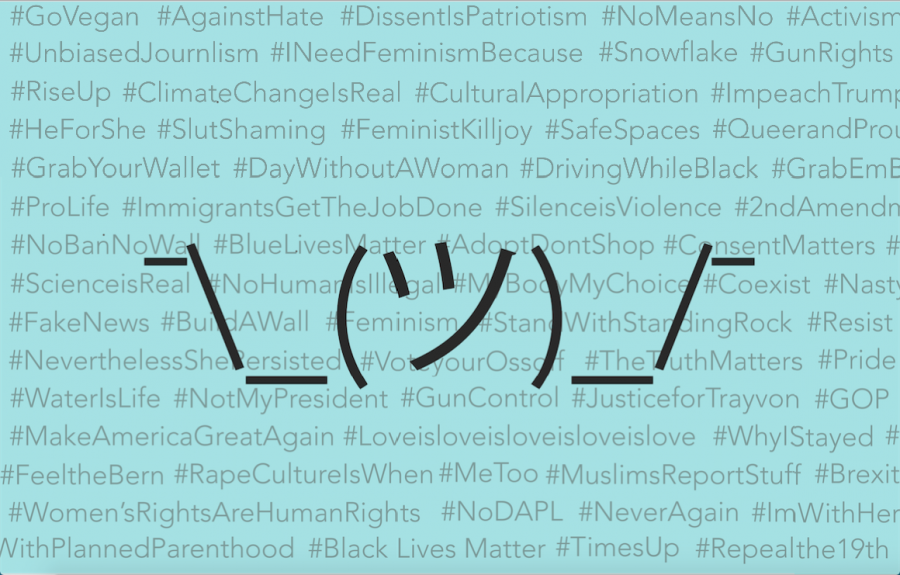With a recent spike in hate crimes, government shutdowns, the prospect of losing protections for minorities and the dissemination of fake news, many Americans are now feeling more compelled to get involved in activism then they were a year or two ago. While participating in massive protests, phone banks and local politics are all great ways to do so, they are also not very practical for most people. Protesters could be arrested if demonstrations turn violent, and many low-income workers can’t take time off work without the risk of being fired. However, there are plenty of activism opportunities that the average citizen can partake in — no incarcerations or pink slips required.
1) Support charities and nonprofit organizations
Charities and nonprofits are great ways to support causes you believe in with minimal time commitment required. However, it can be difficult to discern real charities from fake organizations. Therefore, I’ve compiled a list of credible organizations from a variety of different causes.
For those interested in supporting women’s health and reproductive rights, organizations like Planned Parenthood help provide people across the country with affordable healthcare, while the Center for Reproductive Rights fights to change unfair policies in women’s healthcare. For minority and civil rights in general, both the Southern Poverty Law Center (SPLC) and the American Civil Liberties Union (ACLU) provide legal assistance in cases where civil rights were violated. The National Association for the Advancement of Colored People (NAACP) is another great organization that advocates for political, economic, social and educational equality for people of color, with the ultimate goal of eliminating racial discrimination. Organizations that support the LGBTQ community include The Trevor Project, an organization that focuses on suicide prevention for members of the LGBTQ community and operates a 24/7 suicide hotline, and the Human Rights Campaign, which is the nation’s largest LGBTQ civil rights organization.
In this age of political polarization and fake news, it is more important than ever that we support journalism and learn to be more media literate.
2) #GrabYourWallet
For those who can’t donate a lot of money to charities, sometimes choosing not to spend can be just as effective. Boycotting businesses that have known human rights abuses (such as discrimination of customers, unequal pay, unfair treatment of employees and child labor) can send a strong message to that company, especially if it’s done on a large scale. In addition to avoiding certain businesses, seek out other stores and companies that give back in some way, whether they operate in a more environmentally-friendly way, donate their profits to charities, or serve the local community in some other form.
3) Support journalism
Another really important and really simple piece of activism is keeping up with what’s happening around you. In this age of political polarization and fake news, it is more important than ever that we support journalism and learn to be more media literate. A great way to do this is to get a subscription to both your local paper and some credible national news sources (The New York Times, the Washington Post, the Wall Street Journal, Al Jazeera and the BBC are a few to start with). You can also use Read Across the Aisle, an app that helps you keep track of the political biases in your news sources and helps you break out of your own ideological bubble by suggesting publications with varying political affiliations. The app will send you reminders throughout the day if you start reading too far to one side of the political spectrum and if you stray all the way to the left or the right, it will shut down until you read some articles from the other end of the spectrum.
4) Volunteer locally
Activism doesn’t have to be on a national scale. Volunteering at a local food drive or animal shelter can also make a huge difference, as well as teaching you valuable life skills. It can also help you become more aware of the problems that affect people right in your town and give you the ability to make a difference in the lives of those around you.
5) Be an informed voter
What’s the simplest, most convenient, risk-free form of activism in existence? That’s right, it’s voting.
Although you may not want to choose between “the lesser of two evils” for the presidency, California tends to combine state and local elections with national ones. This makes voting even more essential, because the people elected to office and the new laws that are passed will directly affect your community and your life.
But just voting isn’t enough. In order to have a real impact, you have to do a little research on the candidates and the issues being presented. By staying up to date with the news, you should have a relatively good sense of what you will be voting for, but make sure to fact-check your sources and listen to both sides of every argument before making a decision.
6) If all else fails, be able to listen
A lot of times, people turn to tactics like mass protests and demonstrations because they feel that they are not being heard. Even if you can’t bring yourself to give to charity, support journalism, volunteer or even vote, you can still support activist movements and those involved with them just by listening. Be willing to hear what people have to say, even if you don’t agree with it. Don’t dismiss ideas just because of a perceived notion of what a cause stands for. At the end of the day, we’re all just trying to make the world a better place. The least we can do is listen.
